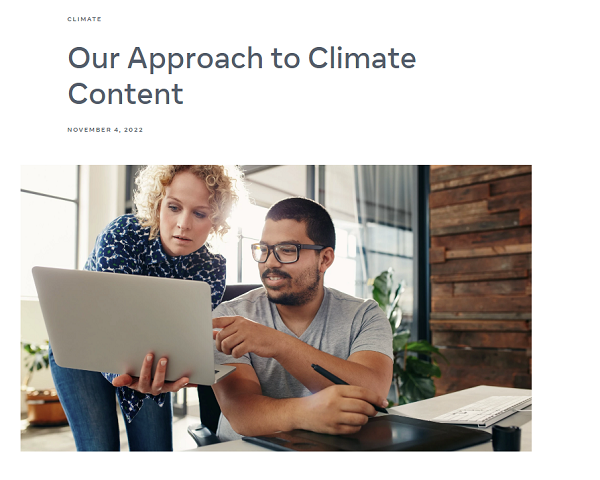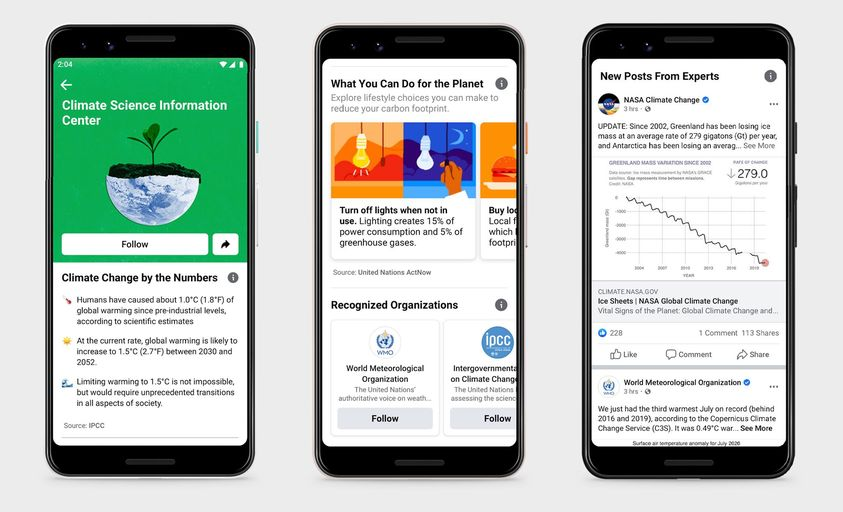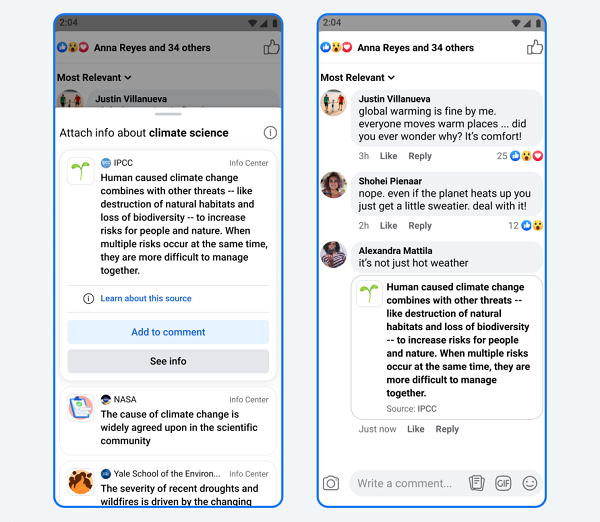The COP27 summit is being held in Egypt this week, bringing together a range of world leaders and experts to discuss the ongoing global effort to combat climate change, and what can be done to reduce the impacts, and address climate management moving forward.
In line with this, Meta’s provided a new overview of the various actions that it’s taken to provide authoritative climate information in its apps, and the internal measures it’s implemented to become carbon neutral, as a company, by 2030.
First off, Meta says that it’s launched a new climate overview page which outlines all of its various climate change efforts in one place.

The page includes details on Meta’s climate misinformation policies, overviews of its various information tools and resources, research reports, links to other data points and websites, and more.
Meta’s also expanded its Climate Science Center to more regions, with the info hub now available in 165 countries.

Meta’s also expanding its Climate Inform Labels to provide more context about climate change in-stream, while it’s also launched a new Climate InfoFinder tool which enables Facebook users to search for trusted information about climate change, and link to this content directly in comment threads.
Meta’s also launched a new Climate Science Literacy Initiative with the aim of ‘pre-bunking;’ climate misinformation by showing informational elements that highlight five of the most common techniques used to misrepresent climate change.

Meta’s also testing a new feature in Facebook Groups called ‘Climate Pledges’.
“Developed with inputs from the UN Environment Programme and UN’s ActNow, the Climate Pledges feature contains expert-backed climate solutions to spark conversation and help people understand the most impactful actions they can take. Group admins can choose the solutions most relevant to their communities, invite group members to join, provide support and offer tips to keep everyone accountable.”

These are positive steps, and given Meta’s power to distribute information on a broad scale, they could also be hugely impactful in shifting opinions on climate science, and getting more people to accept that the impacts of climate change are very real, and are already happening. Which could prompt more action, and more calls for action, around the world.
Because really, large-scale action is what’s needed. Doing your part by recycling and reducing consumption all helps, but the big changes need to come from our governments and leaders, and the more pressure we can put on them to implement such, the better off we’ll be.
But there are no easy answers, which is why these types of prompts are so important, in highlighting key questions, and prompting conversations, which could, eventually, lead to more significant change.
Meta, again, has huge capacity to influence public opinion, as we’ve seen in many negative and harmful ways. But it can also be a force for significant good, through education and awareness.
These are positive steps in this respect.



